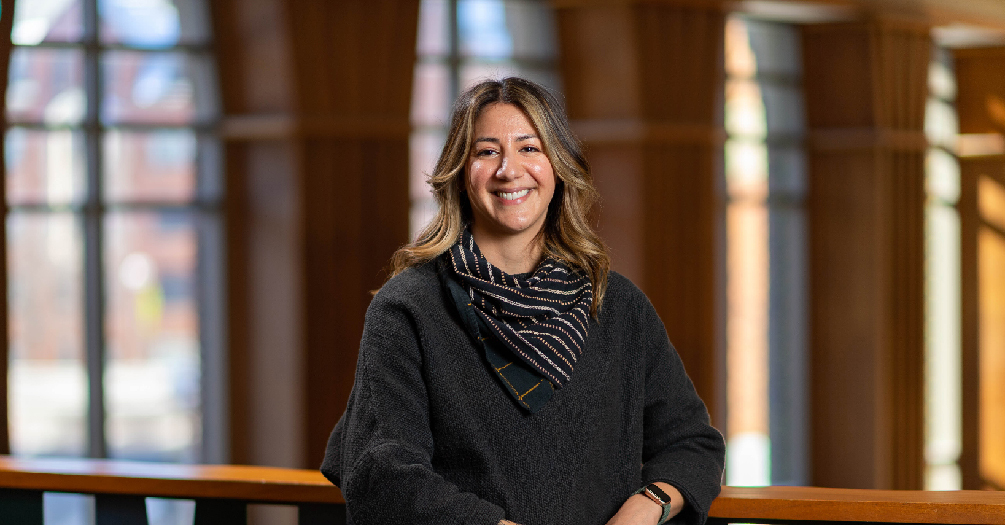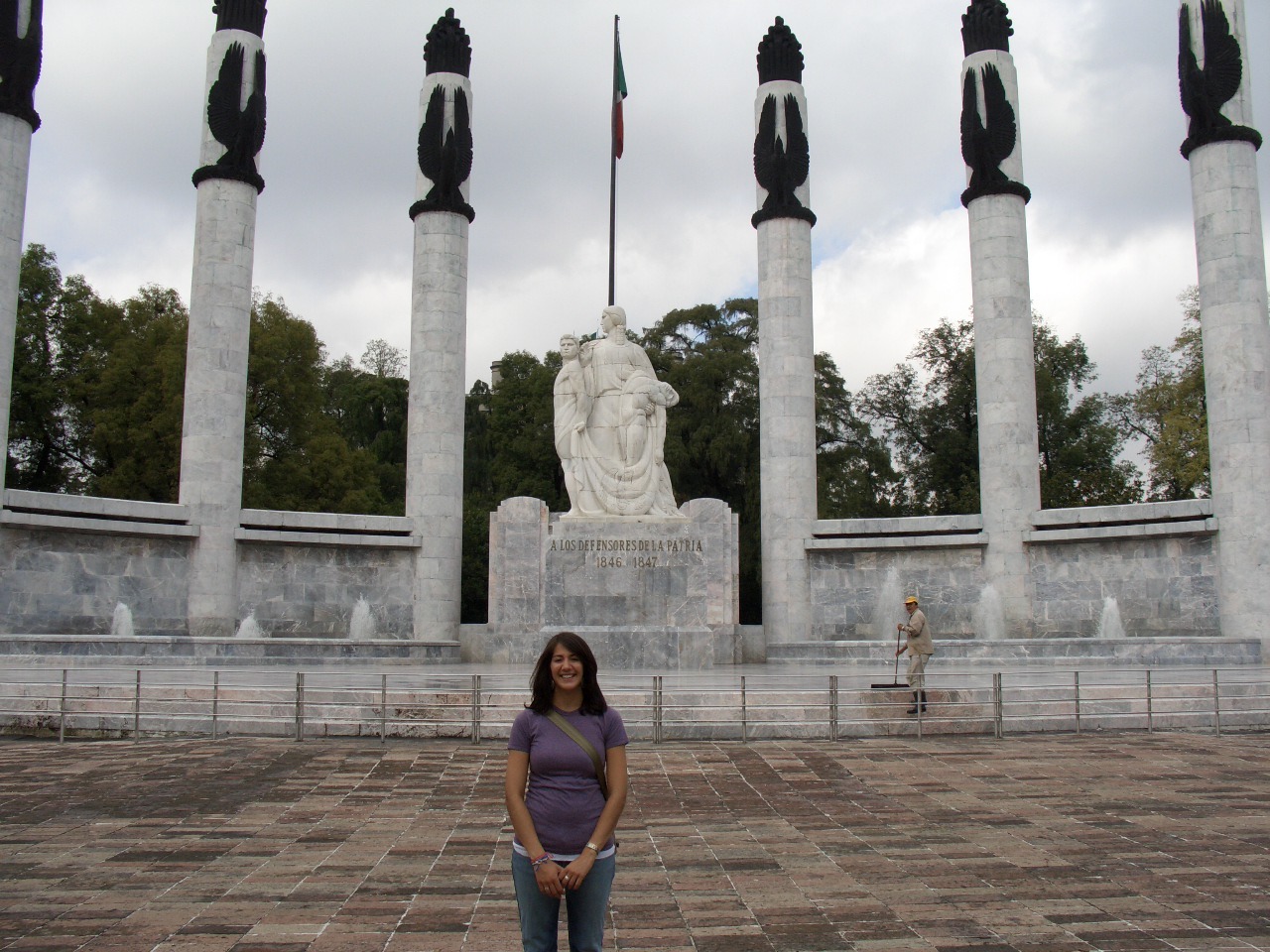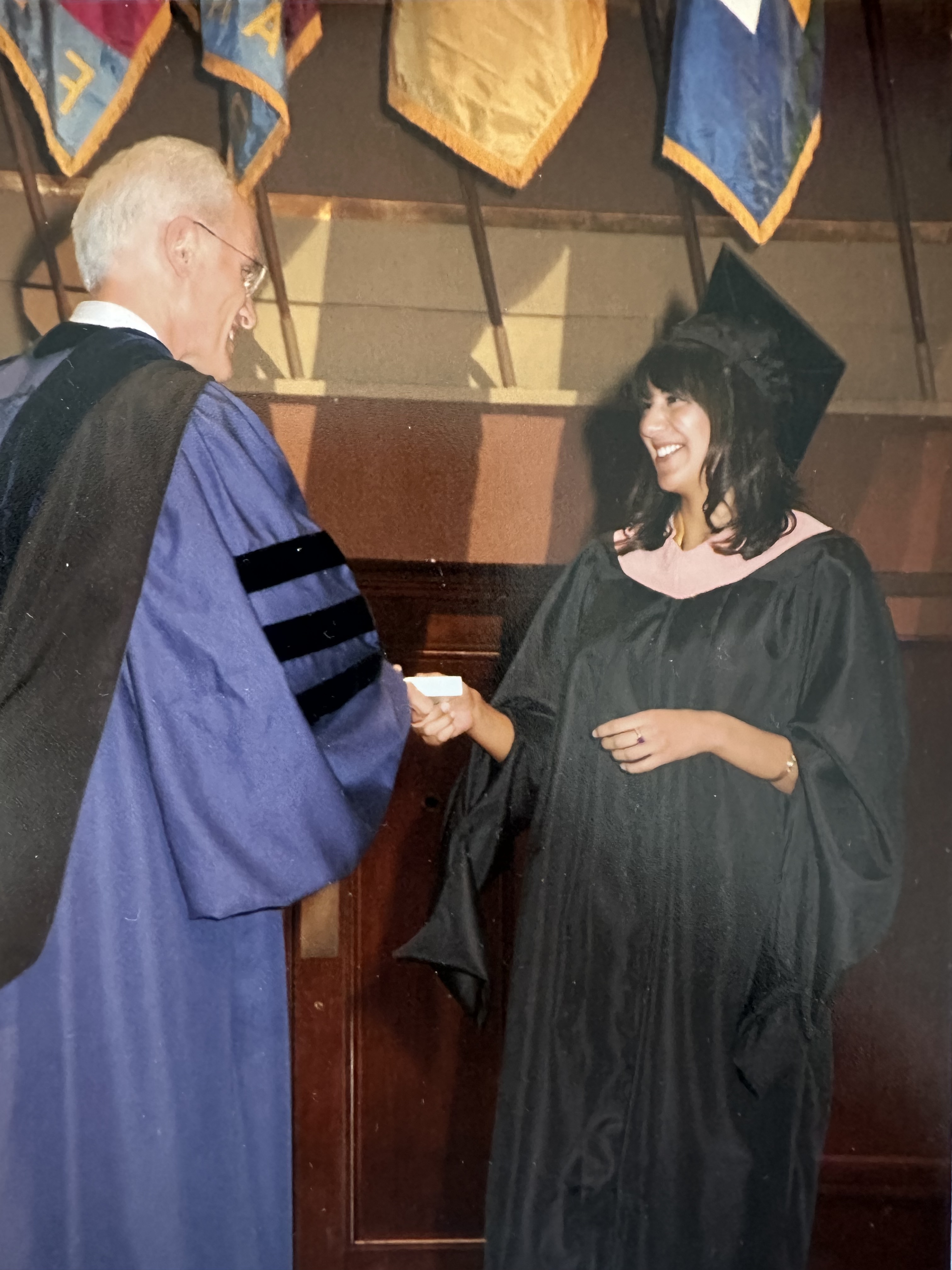Kiran Szekeres: ‘A variety of voices need to be heard’ in public health

Eugene Feingold Excellence in Diversity Award recipient is director of Office of Foundational Learning and Practice
Kiran Szekeres is the director of the Office of Foundational Learning and Practice in the Department of Health Behavior and Health Education at the University of Michigan School of Public Health. She earned a Master of Public Health from Michigan Public Health and was the 2022 recipient of the Eugene Feingold Excellence in Diversity Award. This award honors various members of the School of Public Health community for their extraordinary dedication to developing diversity at the University of Michigan.
The following is a Q&A with Szekeres:
What led you to the field of public health?
My father was a physician and a lot of our close family friends were also in the medical field. As kids, all of us had this awareness of health and medicine. My father was born in Kenya and came to Canada as a refugee from Uganda while he was in medical school. Many of our close friends and relatives who I knew growing up were also refugees or immigrants. They showed me that there are other places in the world that are very different from where I grew up. It showed me that many people need to move and leave their homes for their jobs, their education or even for their safety.
This sparked an interest in me about figuring out why this happened, and it got me thinking about the unfairness of it. These experiences were very formative for me. I thought I would be a doctor like my father and I began a pre-med track.
I quickly realized that in a pre-med path, we weren’t talking about humans, health or society at all, and I struggled with that. I took a class in medical anthropology that was all about living with HIV. I realized that this was more in line with what I wanted to pursue. I ended up changing my major to anthropology and received a global health studies minor.
What encouraged you to pursue an MPH?

Studying in Mexico City made me curious about public health. I asked myself, “Why do all these people in the articles I’m reading for class have 'MPH' behind their name and how do I get that?” I asked the faculty at my school where I could earn an MPH and quickly saw that Michigan was the place for me.
Going to graduate school can be very intimidating—there are time concerns, financial concerns and other factors to consider. I found that Michigan was very accessible and more than willing to help me through these concerns and challenges. I always felt like I was supported.

What do you enjoy most about working with Michigan Public Health students now?
I work with students on navigating the practice and experiential learning requirements of their Master of Public Health. I also lead our department alumni engagement efforts.
What I love about our students and alumni network is the diversity of backgrounds, goals and interests they bring to the Department of Health Behavior and Health Education, leading into a breadth of interesting careers and accomplishments where they can apply their Health Behavior and Health Education skills. Each year brings a new challenge in finding experiences that fit the cohort, and that often involves leaning on our amazing alumni network.
Our students and alumni are wonderfully collaborative and supportive of the department. They are a vital connection between academia and the professional or public health practice world. Their feedback and insights help us keep our program and processes relevant and up to date so that our students can be prepared for the workforce.
What is the importance of diversity, equity and inclusion in public health?
There are many overlaps between culture, healthcare and public health, and it’s become clear to me that we’re not getting it right as it is. To me, that’s why global health is such a crucial part of the field; we need to gain a better understanding of how we can improve access to health care for underserved communities and figure out how to provide better care for underrepresented populations. We can also learn from other systems around the globe to help us in this mission.
Becoming a parent was also a very eye-opening experience for me, and it forced me to look at my identity in different ways and navigate new challenges. As a woman and a mother, there are a lot of tradeoffs to consider all the time. There have been many times in my career where I’ve asked myself, “Would this be an issue for a male?” I’ve learned a lot about the importance of flexibility and setting boundaries in being able to meet needs.
It can be difficult to approach multidisciplinary issues, but we need to tackle these issues and we need to do so with many different perspectives. We need to listen to the people affected by these issues and people from different frames of mind to come up with the most creative and appropriate solutions. A variety of voices need to be heard, and to do that we need to train a variety of people in public health so that these voices are at the table.
What do you do to ensure Michigan Public Health is an equitable and inclusive environment?
I try to be humble and self-reflective every day, and I try to always learn. I am on the Health Behavior and Health Education Department’s curriculum committee, and that allows me to think about what we are requiring of students, how the curriculum has been designed and for whom it has been designed. This helps us develop a curriculum that doesn’t reinforce racist or prejudiced structures.
One thing we’ve added is a DEI professional requirement for our students, and I help facilitate the process of fulfilling that requirement. We also try to host events that bring in thought leaders and work towards our mission of being equitable and inclusive.
A huge part of the work I do is around funding for students for tuition or for internships. We try to make the process as fair and transparent as possible, and we want this aspect of academia to be accessible to students from any background, regardless of the unique challenges they may face. We want students who may have inequitable access to feel supported.
- Interested in public health? Learn more today.
- Read more stories about Michigan Public Health students.
- Support research and engaged learning at Michigan Public Health.
